On 24 March 2024, we organized the Institute for Diversity & Inclusion Inauguration Ceremony and Commemorative Lecture and the Hiroshima University and National Institute of Special Education Joint Symposium.
They were held to commemorate the establishment of the Hiroshima University Institute for Diversity & Inclusion, and to bring together experts involved in education and research on wellbeing, in Japan and abroad, to consider how Japan can achieve sustainable growth, recognize diversity, and build a more prosperous and harmonious society. The aim of the conference was to discuss the concept of wellbeing and to share and explore new ideas and initiatives.
In the first part of the commemorative ceremony, President Mitsuo Ochi stated, “Through the establishment of this Institute, we will promote education and research on how a society and environment can be made easier for diverse people to live in, improve people’s health and happiness, examine measures to provide better learning and working environments, and contribute to improving the wellbeing of both the individual and society. We look forward to your continued support for Hiroshima University” (video message).
President Shinichi Nakamura of the National Institute of Special Needs Education (NISE) then gave the following message: “Hiroshima University and NISE will work together as a centre for training and joint research in Western Japan and will promote initiatives with the mission of communicating the importance of special needs education and inclusive education from Hiroshima to the rest of the country and abroad”.
In her introduction of the Institute, Director Yumiko Suzuki introduced the organization as a global hub for D&I education and research: “As a global hub for D&I education and research, our mission is to promote D&I initiatives by effortlessly integrating various fields and to establish a solid human resource development system to foster an inclusive mindset”.
In the second part of his keynote speech, Professor K. Vish Viswanath of the T. H. Chan School of Public Health, Harvard University, gave a presentation entitled “Communication, social connections and wellbeing”, in which he emphasized that wellbeing is not only about ‘individual well-being’. He spoke about the relationship between digital technology, social media and wellbeing from the perspective of ‘collective wellbeing’, which emphasizes social relationships, which are important in the modern age.
In the third part of the joint symposium, President Shinichi Nakamura of the National Institute of Special Needs Education first addressed the audience with the following words: “I hope that today’s symposium can send a message from Hiroshima on how Japan can achieve sustainable growth, recognize diversity and build a more prosperous and harmonious society, based on the philosophy of wellbeing. I hope that Hiroshima will be a source of information on how Japan can achieve sustainable growth, recognize diversity and build a more prosperous and harmonious society”.
Mr. Yoshiaki Ishida, Director of the Special Needs Education Division, Elementary and Secondary Education Bureau, Ministry of Education, Culture, Sports, Science and Technology (MEXT), stated: “The National Institute of Special Needs Education, the only national center for special needs education in Japan, together with Hiroshima University, which is leading research in the field of pedagogy, will be able to think about well-being in Western Japan, where both urban and under-populated areas are located. The National Institute of Special Needs Education, Japan is theonly national center for special needs education in Japan, and works together with Hiroshima University, which is leading research in the field of special needs education in Japan.
In the joint symposium, five speakers gave presentations in turn, beginning with Professor K. Vish Viswanath of the Harvard T. H. Chan School of Public Health, who gave a presentation entitled “Communication, social connections and well-being: Implications For Translation”. During the presentation he pointed out the problems of information gaps between groups and individuals, representativeness of data collection, and the time lag between scientific research and its translation into practice.
Professor Antti M. Kauppinen, Faculty of Social Sciences, University of Helsinki, then presented “Fairness, Equality, and Well-Being: A Finnish Perspective”, explaining why subjective wellbeing in the Nordic countries is relatively high, based on the equity hypothesis. He suggested that higher average life satisfaction may be a by-product of societies where fairness is guaranteed by the system.
Mr. Tetsuya Munekata, Senior Researcher at the Centre for the Promotion of Developmental Disabilities Education, National Institute of Special Needs Education, gave a presentation entitled ”Development of Inclusive Education System and Well-Being – From the Perspective of Special Needs Education”. He suggested introducing the concepts of agency and wellbeing into special needs education, and suggested that a cohesive society can be achieved when community members have a strong sense of agency.
Mr. Joe Hironaka, Advisor in charge of Communication & Information, UNESCO Regional Office, Bangkok, Thailand, presented “Building the Future of Well-being through Diversity & Inclusion”. He introduced the philosophy related to mental health and wellbeing, as well as specific examples of UNESCO initiatives that promote wellbeing.
Dean and Professor Toshiyuki Yasui, Faculty of Social System Design, Eikei University, presented “Wellbeing Tech: System Design to Enhance Social Wellbeing”. He provided suggestions on how implementation of appropriately designed well-being technology can contribute to improving the subjective wellbeing of individuals and society.
Despite the inclement weather, the event was a great success with approximately 160 participants, including students, researchers, government officials and members of the public with an interest in wellbeing. We will continue to promote education and research on diversity and inclusion, special needs education and wellbeing, and would like to ask for your support and understanding.
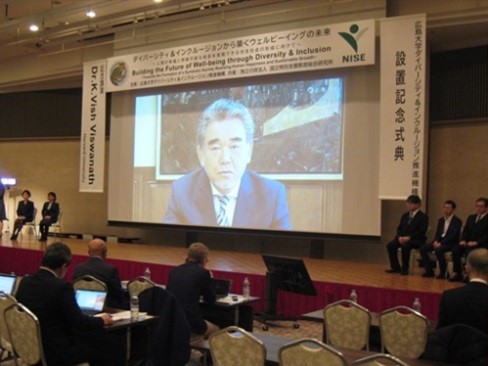
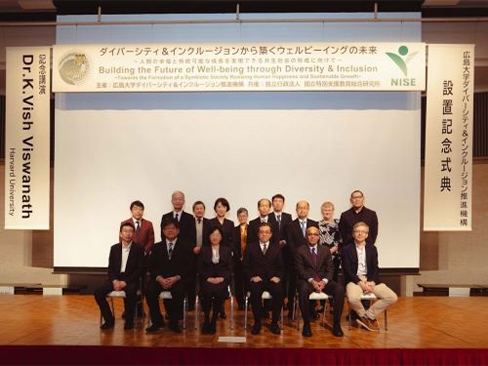
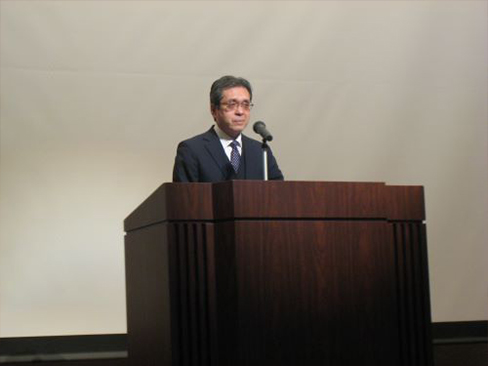
the National Institute of Special Needs Education (NISE)
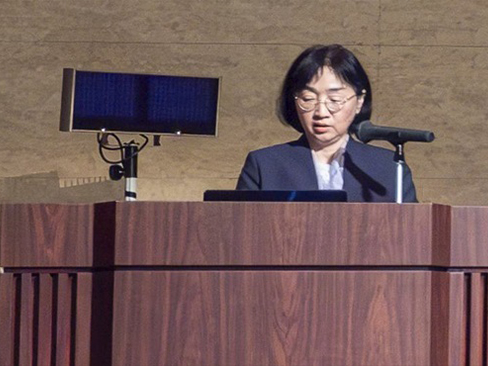
The Institute for Diversity

the T. H. Chan School of Public Health, Harvard University
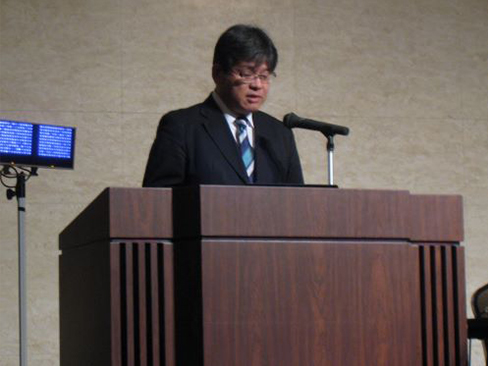
Director of the Special Needs Education Division,
Elementary and Secondary Education Bureau, Ministry of Education, Culture, Sports, Science and Technology (MEXT)

Faculty of Social Sciences, University of Helsinki
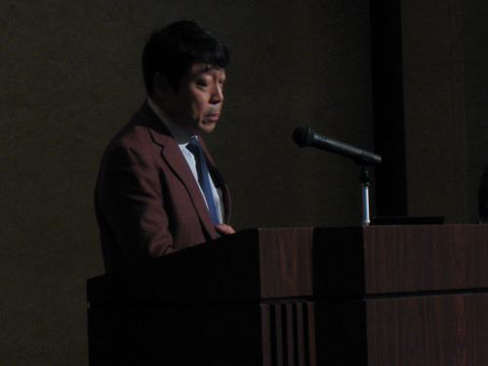
Senior Researcher at the Centre for the Promotion of Developmental Disabilities Education,
National Institute of Special Needs Education
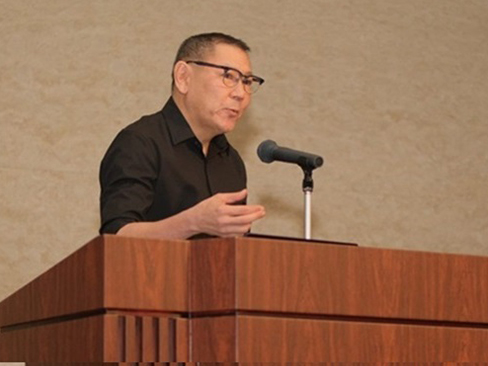
of the T. H. Chan School of Public Health, Harvard University
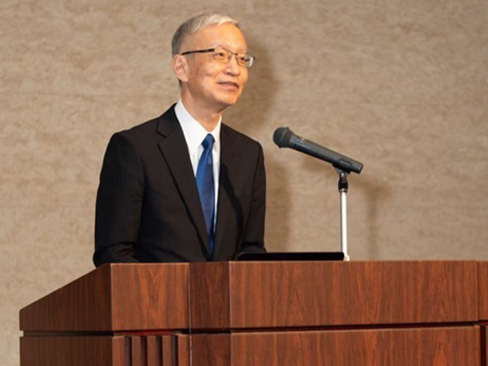
Faculty of Social System Design, Eikei University